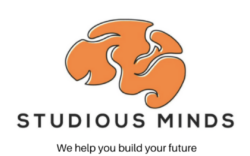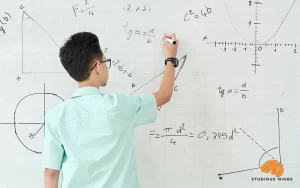The Integrated Programme (IP) is designed to stretch the academic potential of high-performing students, offering a streamlined curriculum that skips the O-Level examinations. Among all subjects, science often poses the greatest challenge due to its fast pace, depth of content, and emphasis on inquiry-based learning. For students transitioning into an IP school or already enrolled, understanding what sets IP science apart can make all the difference in staying ahead of the curve.
The depth and rigour of IP science curriculum
Unlike traditional secondary school science, which tends to follow a more structured and exam-focused progression, IP science delves deeper into core scientific principles. The curriculum is designed not just to prepare students for the A-Levels or International Baccalaureate (IB), but also to develop critical thinking, analytical skills, and research capabilities from an early stage.
IP students are expected to grasp abstract scientific concepts more quickly and apply them in unfamiliar contexts. Content like s.p.d.f, configuration, reduction potential, shapes of molecules, and various enthalpy definitions, may be introduced earlier and explored with greater complexity. For this reason, many students benefit from supplementary support, such as IP chemistry tuition in Singapore, to bridge any gaps in understanding and build confidence.
A stronger focus on independent inquiry and experimentation
While most school science curricula include some degree of practical work, IP science places a much greater emphasis on independent experimentation and open-ended investigation. Students are not only required to follow instructions in a lab setting but also to formulate their own hypotheses, design experiments, and analyse outcomes critically.
This inquiry-based approach encourages intellectual curiosity, but it also demands a high degree of self-discipline and initiative. It’s common for students to feel overwhelmed by the expectations if they are more accustomed to rote learning. To thrive, students need to adopt a mindset that values questioning, reflection, and resilience in the face of failure.
Rigorous curriculum aligned with A-Level expectations
Since IP schools prepare students directly for A-Level Chemistry, the curriculum tends to be more rigorous. Questions are often more challenging and designed to reflect the depth and analytical demands of A-Level assessments. This early exposure helps students build a strong conceptual foundation, but it can also be overwhelming without consistent practice and support.
To manage these higher expectations, many students turn to specialised support. Tutors experienced in IP-level science can break down complex topics and help students adapt to the analytical style of A-Level questions. Enrichment programmes and focused IP chemistry tuition in Singapore offer structured guidance that equips students with both the knowledge and confidence to meet academic demands.
Greater use of real-world applications and current issues
IP science is not taught in a vacuum. Teachers frequently draw upon real-world phenomena, contemporary scientific debates, and current research to make lessons more relevant and engaging. For example, lessons on environmental chemistry may include discussions on climate change, while a topic on bonding might involve cleaning up oil spils or even how a non-stick pan works.
This relevance makes the subject matter more compelling but also increases the level of critical engagement required. Students may be asked to evaluate the ethics of scientific advancements or propose practical solutions to real-world problems. Such tasks go beyond the typical examination questions found in non-IP syllabi, pushing students to articulate opinions and back them with scientific reasoning.
Higher expectations for academic writing and communication
Being able to conduct an experiment is only one part of succeeding in IP science; students must also be able to communicate their findings clearly and convincingly. Whether it’s in the form of lab reports, essays, or project presentations, academic writing plays a significant role in assessment.
This means students need to develop strong writing and organisational skills from the outset for a successful school year. Structuring arguments logically, using appropriate scientific terminology, and citing evidence correctly are all essential. Teachers often look for depth of analysis rather than surface-level descriptions, and marks are awarded for clarity, coherence, and insight.
Strategies for parents and students to manage the transition
For students entering the IP system from primary school or transferring from non-IP streams, the shift in academic expectations can be jarring. Time management, note-taking techniques, and effective study habits become crucial early on.
Parents can support their children by encouraging consistent revision, fostering a love for learning, and seeking additional academic support when necessary. Whether through peer study groups, school consultations, or professional tuition services, early intervention can prevent knowledge gaps from widening as the curriculum accelerates.
Conclusion
Science in the Integrated Programme is designed to be intellectually stimulating and future-focused, but it also requires students to be adaptive, motivated, and well-supported. By recognising the unique demands of IP science early on, students can prepare themselves more strategically for success.
At Studious Minds, we specialise in helping students unlock their full potential through targeted academic support tailored to the demands of the IP curriculum. Whether your child is looking to deepen their understanding of scientific principles or simply needs help keeping up with the fast pace, our experienced tutors are here to guide them every step of the way. Visit Studious Minds to learn more about how we can support your child’s IP science journey.



